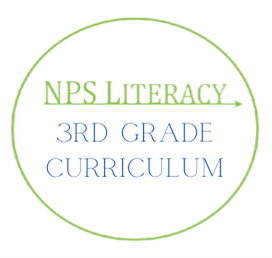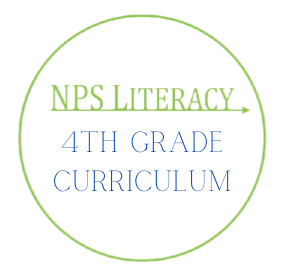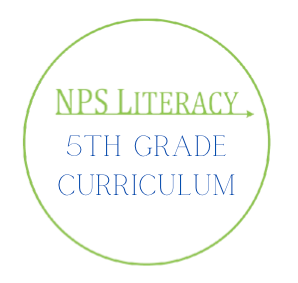- Norfolk Public Schools
- Grades 3-5
- Curriculum
Literacy Plan
Page Navigation
- Home
- Literacy Plan Action Steps
- Preschool
- Grades K-2
- Grades 3-5
- Grades 6 - 8
- Grades 9 - 12
- Literacy Across Content Areas
- Learning Support - Special Education Services
- English Learners
- Resources for Families
- Norfolk: A Community of Readers and Writers
- READ 14.2 Initiative
- Professional Development
- Virginia Literacy Act: Overview & Updates
- Virginia Literacy Act: Required Division Documents
- Glossary of Literacy Terms
3-5 Curriculum
-
The NPS 3-5 English and Language Arts curriculum aligns with the Virginia 2024 English Standards of Learning, continuing the rigorous, evidence-based approach established in the early grades. This curriculum focuses on building strong readers, writers, and communicators through explicit instruction in phonics, vocabulary, comprehension, fluency, and writing. Students engage with a diverse range of fiction and nonfiction literature, applying their skills to increasingly complex texts and learning experiences. This approach ensures that all students are on a clear path to college, career, and military readiness by the time they complete high school.

Virginia English Standards of Learning
VA 2024 English Standards of Learning K-12
High Quality Instructional Materials (HQIM)
Our K-5 classrooms use Benchmark Advance, a High-Quality Instructional Material (HQIM) that ensures all students engage with rich, challenging content from kindergarten through fifth grade. This curriculum builds essential literacy skills, starting with strong phonics instruction in the early grades and advancing to complex reading and comprehension in later grades. Benchmark Advance is aligned with the Virginia Literacy Act, which requires all schools to use VDOE-approved, research-based materials by the 2024-25 school year. By following Benchmark Advance’s carefully designed sequence, we provide a consistent, rigorous, and effective learning experience for every student.
Benchmark Advance Vertical Progression of Knowledge-Building
Unit Topics and Essential Questions

Third Grade Literacy
At the third grade level, students will:
- read grade level texts with prosody, accuracy, and appropriate rate
- read a variety of literary and informational texts
- read a variety of genres with a focus on folk tales and myths across cultures
- continue to build their background world and word knowledge
- expand their vocabulary while reading by using word analysis skills
- continue to use comprehension strategies to monitor their understanding while reading
- continue to expand their comprehension of literary and informational texts through collaborative discussions and writing about texts
- use the writing process to plan, draft, revise, and edit writing for a variety of purposes and in a variety of forms
- write legibly in cursive
- continue to identify and use appropriate resources to complete a research product and understand plagiarism to report information using their own words
- use effective communication skills to participate in collaborative activities and will give oral presentations

Fourth Grade English Standards of Learning
Understanding the Fourth Grade English Standards of Learning
Fourth Grade Literacy
At the fourth grade level, students will:
- compare literary and informational texts
- apply comprehension strategies to monitor their understanding and to think critically about the grade level texts read
- continue to extend and expand understanding by engaging in collaborative conversations and writing about what they read
- read a variety of genres with a focus on realistic and historical fiction across cultures
- expand vocabulary using knowledge of roots, affixes, synonyms, antonyms, and homophones
- continues to write in a variety of forms and purposes across content
- use organizational structures to convey their message through writing
- work in diverse teams as both a facilitator and a contributor
- continue to increase communication and collaboration skills
- deliver multimodal presentations and begin to examine media messages
- demonstrate comprehension of the research process by evaluating the relevance and reliability of information collected to create a research product
- continue to understand the difference between plagiarism and using their own words

Fifth Grade Literacy
At the fifth grade level, students will:
- compare grade level literary and informational texts
- continue to read a variety of literary and informational texts
- focusing on the author’s craft, style, and approach on a topic or concept
- continue to extend and expand understanding by engaging in collaborative conversations and writing about what they read
- continue to expand vocabulary using knowledge of roots, affixes, synonyms, antonyms, and homophones
- use the writing process to write in a variety of forms and purposes across content, demonstrating their thinking and understanding about a text
- collaborate with diverse teams working respectfully with others, showing engagement, and valuing individual contributions
- deliver multimodal presentations
- compare/contrast a variety of techniques used in media messages
- demonstrate comprehension of the research process by evaluating the relevance, reliability, and credibility of information collected to create a research product

